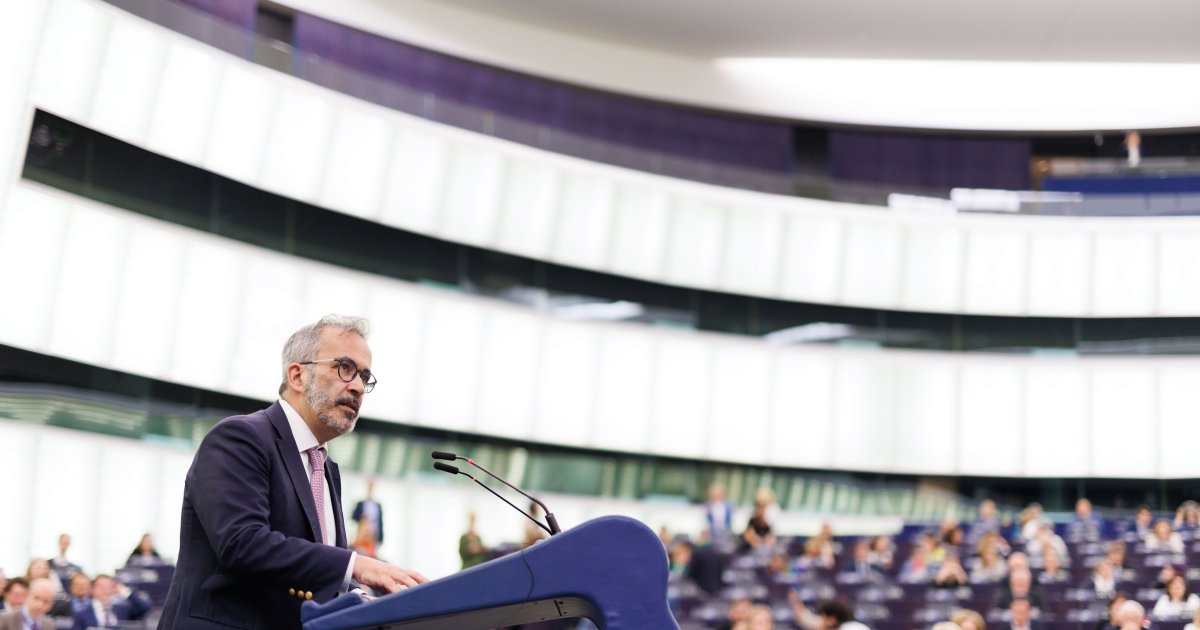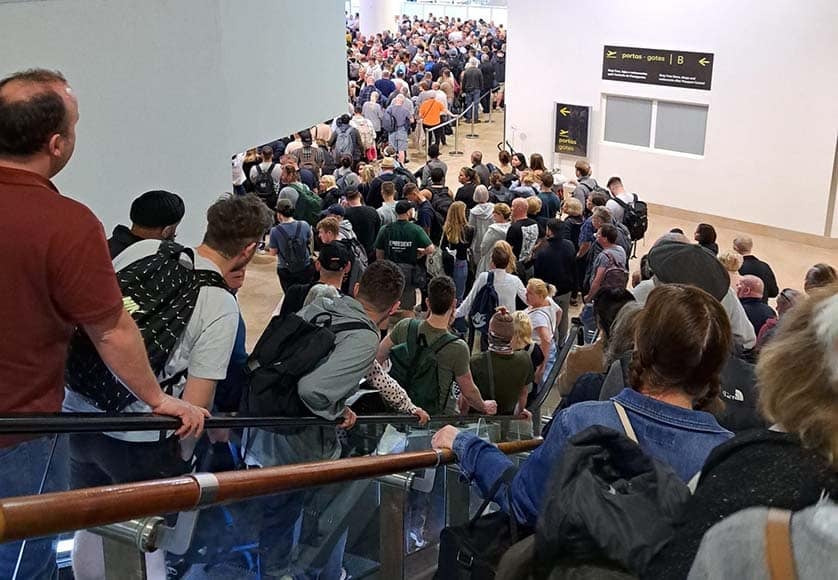
Paulo Rangel, Portuguese MEP from the European People’s Party (center-right) and rapporteur of the text, in front of a cyclist in Strasbourg.
Credit: European Parliament
The first week of June was an opportunity for European Parliamentarians to meet in a plenary session of the European Parliament in Strasbourg. An ideal opportunity to discuss and vote on texts that originate mostly from the Authority’s offices. An original legislative process that could soon give way to a real direct right of initiative to the European Parliament, thus upsetting European institutional logic… At least, that’s what MEPs want.
Initiative right? What is it ?
On Thursday 9 June, MEPs voted by a large majority to propose a direct right to the legislative initiative of their institution. The initiative report therefore asks other European political institutions to grant the European Parliament the right to initiate. But what is a file The right of legislative initiative “Right?
The right of legislative initiative is the process by which a political institution is allowed to propose legislative texts, i.e. laws. The right of legislative initiative has always been, and remains, the subject of a political struggle between governments and parliaments, between the executive and the legislature. Today, in Europe, all national parliaments have the right to initiate legislation, and to share it generally with their governments. Some competencies are reserved to the executive while the rest are the powers of Parliament (as in Germany, Italy, or Spain), or vice versa (as in France).
As such, the [Parlement] European is an exception. The founding treaties of the European Union (EU) state that the Commission has the right to write law, according to guidelines set by the European Council of Heads of State and Government of the European Union. In the European Parliament, there are only a few competences left. remaining ”, as the text rapporteur Paulo Rangel tells us, in particular with regard to the electoral rule applicable during the European elections, as well as the indirect right of legislative initiative, that is, the right to ask the Commission to legislate on a region, without being obligated to respond to this same request.
A “true sovereign” parliament
For Paulo Rangel, the situation in which the European Parliament finds itself is “ worthy of a medieval parliament “.” Medieval councils always had some subsidiary jurisdiction, but for the legislative process parliaments only had the right to petition Paulo Rangel does not consider it an “exaggeration” to compare the medieval right of petition to the indirect right of initiative which the European Parliament now enjoys with the Commission. For the Portuguese Parliament, the institution that “ Today it is the only one that enjoys direct democratic legitimacy It must be able to propose legislative texts on its own. The European Parliament, in the context of multiple crises, must be ” real parliament “Parliament” sovereign “.
For MEPs, the European Parliament should not necessarily have legislative monopoly “.It proposes the construction of a new European political system in which the competencies remain under the supervision of the Commission while other competencies are shared with the European Parliament.” We can even suggest that some legislative competences be the preserve of the other common decision-maker, the council.[…] We can’t be closed to different proposals Mr. Rangel says.
What is the schedule?
Paulo Rangel’s text was adopted by 420 votes “in favor” and 117 votes “against”. This vote is the result of nearly two years of work, and the procedure for the text began in September 2020. But this long-term work is far from over. As for the text, an initiative report for the time being purely protesting, and not translating it into real reform, the Commission and other European institutions, led by the European Council, must agree to reopen Pandora’s Box: the Treaties. Indeed, for the European Parliament to one day have a real direct right to legislative initiative and thus become a “true Parliament”, the institutions must allow treaty review. This treaty reform is an idea that has been proposed for a long time but has had a concrete resonance for months, the Conference on the Future of Europe (CoFoE). Last month, the Citizens’ Conference expressed a series of measures aimed at democratizing and modernizing EU institutions and policies. Among these actions is a direct entitlement to the legislative initiative in the European Parliament.
In short, now that the European Parliament has chosen to give itself more power, it is often, once again, up to the states to decide: which issue to pursue.






